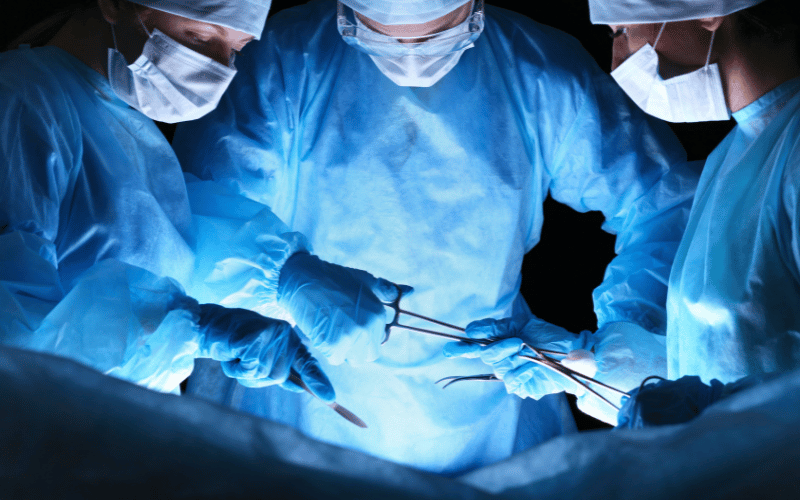Cause 6: Stomach and Gallbladder Surgery

Surgeries on the stomach or gallbladder aren’t just about the operative procedure. They can fundamentally alter how the digestive system functions. With parts of the system now modified or removed, it’s not uncommon to experience changes in bowel habits, with diarrhea being a prominent outcome in some cases.
For instance, after gallbladder removal, a condition termed post-cholecystectomy syndrome can emerge. The gallbladder’s primary role is storing bile, which aids in digesting fats. Without the gallbladder, bile drips continuously into the intestines, potentially leading to diarrhea, especially after fatty meals.
Similarly, surgeries like gastric bypass or gastrectomy alter the stomach’s size or function, impacting how food is digested and absorbed. Rapid food transit or bacterial overgrowth can result, both potentially leading to diarrhea.
Post-surgery, the introduction of a carefully planned diet can help manage and reduce symptoms. Medications might also be prescribed to regulate bile flow or address bacterial overgrowth. It’s essential to work closely with healthcare providers during the recovery phase to navigate any digestive issues effectively.
Surgical interventions, while life-saving or enhancing, come with their set of post-operative adjustments. Digestive changes, like diarrhea, might seem daunting initially, but with time, guidance, and adjustments, many individuals find a new, comfortable norm for their bodies. Patience and open communication with healthcare professionals remain key. (6)